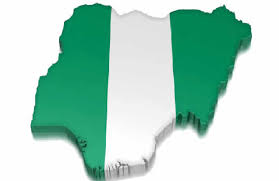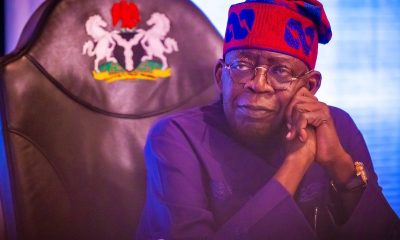Opinion
Nigeria: The “Animal Farm” that characterises our polity

By Justine John Dyikuk
Adoctoral candidate argues that George Orwell’s thesis transcends geographical location as its blockbuster effects remain an irresistible recipe on the menu of political literature reminding power handlers who betray their fellow countrymen and women in totalitarianism and corrupt fashion that they might soon meet their Waterloo.
Unfolding events in the most populous black nation on earth are reminiscent of George Orwell’s 1945 satirical novella. Set around inequalities, corruption of power and oppression, the allegorical piece opens a can of warms for despotic regimes around the world.
The stark reality of systematic corruption in all the levers of society, coordinated by the poor and middle class for the benefit of a few opulent calls to mind lessons from the epic novel set in European culture.
One breathtaking takeaway lesson from the work is the point that, at the end of the day, some animals are more equal than others. In the story, one finds that the saying, “he who pays the piper, calls the tune,” meets a tragic end. Sadly, history is being repeated in the West African nation as political actors seem obsessed with manipulating the masses for their convenience. Will doomsday come? Well, let’s review the novel.
Orwell’s satirical novel mirrors the Russian Revolution
The novelist uses a group of farm animals as a metaphor for the top Russian Revolutionists of 1917 and Stalin’s eventual Soviet Union revolution. Mr. Jones’ ill-treatment of the animals is met by a revolt staged by Old Major – a shrewd boar. Since their owner defied the principle of “Animalism” which was meant to create a sense of equality for all, at his death, through two pigs, Snowball and Napoleon, the animals overthrew humans and renamed the farm. Expectedly, they set new rules and the seventh commandment.
Although there was some respite for a while, however, the new managers especially Napoleon soon became corrupt and manipulative. They changed the seventh commandment and formed alliances with human beings whom they initially opposed. Since the animals got little despite working very hard, the farm was not any different from what it once was – while other animals lived in poverty, the pigs relished a lavish lifestyle with impunity.
“Animal Farm” as a metaphor for Nigeria
Although the author had the Russian Revolution in mind, the allegory fits the Nigerian narrative. The farm is a veiled allegory for the military regime and the subsequent days of return to democratic rule in 1999. Accordingly, the animals represent various military juntas that were characterised by impunity and authoritarianism. The military regimes of Generals Muhammadu Buhari, Sani Abacha and Ibrahim Babangida easily come to mind.
In terms of corruption of power, the novel comes across as a powerful literary work which typifies the saying “power corrupts, and absolute power corrupts absolutely.” The corrupting influence of power by those who wield it recalls how the pigs’ erstwhile good intentions soon gave way to tyranny, impunity, and betrayal of the equality of all animals – the principle of Animalism. To be sure, all coupists in Nigeria claimed they had noble intentions of making the country better. They pledged to fix the nation and give power back to civilians. Did the khaki boys deliver on their promise?
It is curious to reflect on how the pigs were able to manipulate human language and rewrite history. What good example can we find of this in contemporary Nigerian society? The military era under Buhari, Babangida and Abacha changed the slogan (commandment) – they successfully distorted the truth through a propaganda machine on the one hand and totalitarian censorship that muffled the press on the other.
The days of Buhari’s 1984 Decree Number 4, the Protection Against False Accusations Decree which scholars describe as the most repressive press law ever enacted in Nigeria Degree 4, detaining of activists like Fela Kuti and NewsWatch staff leading to the death of investigative Dele Giwa 37 years ago through a purported letter-bomb are worth mentioning – sadly, so.
In that allegory, there is a class struggle – between pigs (the ruling class) and other animals (the working class). Before the nation’s return to democracy, the working class with the collaboration of the activists, academics, Civil Society Organisations (e.g, National Democratic Coalition), clerics, and musicians worked hard to liberate the nation from the clutches of miliary rule – many were imprisoned, and others died in the process. The ruling class who reluctantly gave the power to usher in the democratic rule have suddenly either returned to the scene or ensured their proxies are holding the reins of power. They hijack the political process or buy their way through. Just when the masses think they have successfully sacked an oppressive regime through the ballot, sooner than later, they would realise that they replaced it with a worse one. The constant fall of the naira to the dollar and the general biting economic reality on the ground are cases in point.
In terms of individual rights and freedoms enjoyed by civil liberties, can we say that Nigerians are faring better compared to erstwhile totalitarian regimes? The author aptly discloses that with time, the animals lost their rights and freedom. Is it not a shame that those who once staged protests that the country should return to civil rule are now muffling activists, the press, academics, clerics, and artistes who were champions in the struggle for a free nation?
Conclusion
Orwell’s cynical view of politics reminds Nigerians that in our Manor Farm since the men in agbada have not demonstrated that they are any different from the military in ensuring equality, freedoms and poverty reduction, chances are that the “revolution of the poor” might not augur well for everyone. What does this mean? Well, in the face of totalitarianism, corruption, and a compromised electoral system, power handlers who betray their fellow countrymen and women will meet their Waterloo. Orwell’s thesis transcends geographical location – its blockbuster effects remain an irresistible recipe on the menu of political literature. The political class in Nigeria ought to make hay while the sun shines. God bless the Federal Republic of Nigeria.
Justine John Dyikuk, a Catholic priest, is a lecturer of Mass Communication at the University of Jos, Nigeria, Senior Fellow, International Religious Freedom Policy, Religious Freedom Institute (RFI), Washington, D.C. and PhD Candidate, University of Strathclyde Glasgow, United Kingdom.
















